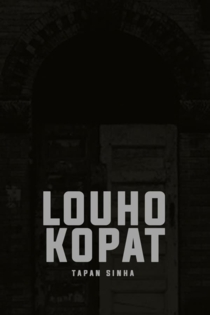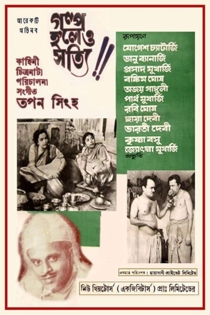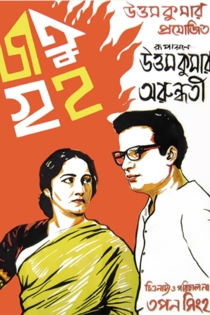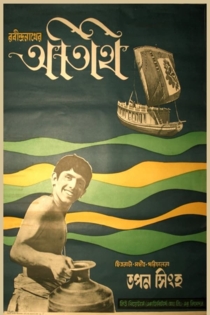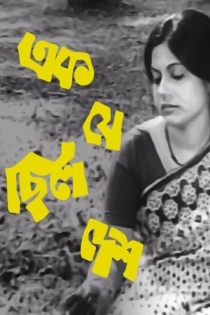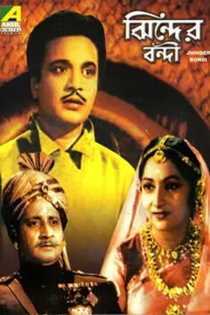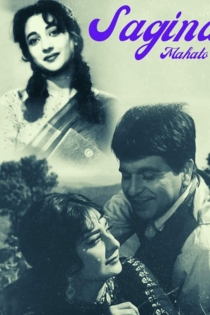
Tapan Sinha
2021Born in Kolkata, Sinha was the fifth child of Tridibesh and Pramila Sinha. He attended schools in Bhagalpur and Bankura. As a student at Patna University, Bihar, Sinha responded sympathetically to Mahatma Gandhi's Quit Indiamovement, launched against the British in 1942. However, when he moved to Kolkata University, where he was studying for an MSc in physics, he fell under the spell of British and American film-makers, particularly John Ford, Billy Wilder, Frank Capra and Carol Reed. He later claimed that it was Jack Conway's 1935 version of Dickens's A Tale of Two Cities that motivated him to become a film-maker.
After gaining his master's in 1946, Sinha joined the New Theatres studios, Kolkata, as a trainee sound engineer. Two years later, he moved to the Kolkata Movietone studio and, in 1950, he received an invitation to the London film festival and an opportunity to work at Pinewood studios, near London, where he took a job in the director Charles Crichton's unit as a sound engineer. While in London, he was exposed to the works of Italian directors Federico Fellini, Vittorio De Sica and Roberto Rossellini. On returning to India, Sinha made his first film, Ankush (The Goad, 1954), which featured an elephant belonging to a zamindar (tax collector) as the central character. His final film was released in 2001.
Sinha, whom many critics regarded as India's David Lean, was honoured at international festivals in Berlin, Venice, London, Moscow and San Francisco and had received the Dadasaheb Phalke award, the highest cinema honour from the Indian government in 2008.
Ek Doctor Ki Maut
Tapan Sinha
Shabana Azmi, Pankaj Kapur
After years of painstaking research at the cost of his domestic pleasure, Dr. Dipankar Roy discovers a vaccine for leprosy. The news is flashed over television and overnight, an insignificant junior doctor receives international recognition. Professional jealousy and abuse of power threaten Dr. Roy, even as the Secretary of Health reprimands him for breaking the news to the press. He is asked to report to the Director of Health. Professional colleagues Dr. Arijit Sen and Dr. Ramananda invite him to a lecture but it is merely a pretence to humiliate him. Dr. Roy suffers a mild heart attack but he refuses to go to the hospital. His wife and few others like Dr. Kundu stand by Dr. Roy, but the harassment continues; a letter from an American foundation is suppressed and Dr. Roy transferred to a remote village. The last straw is two American doctors receiving credit for discovering the same vaccine. Dr. Roy is shattered. Written by Rajesh Das.
Ek Doctor Ki Maut
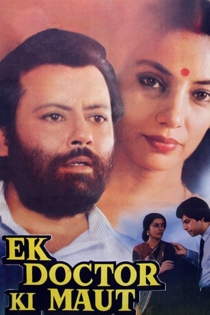
One's Own People
Tapan Sinha
Chhaya Devi, Swarup Dutta
Set against the backdrop of the political violence that rocked India, and West Bengal in particular, in the late 1960s, it tells the story of an aged widow in a village who goes to Calcutta to stay with relatives, but faces only exploitation. She moves to a slum, and finds her "own people" in a group of educated, unemployed youth, who are caught up inexorably in the prevalent violence.
One's Own People
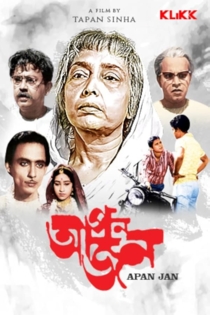
The Garden of Bancharam
Tapan Sinha
Manoj Mitra, Nirmal Kumar
The story of an old peasant,Bancharam (Mitra),who defeats the tyrannical landlord Chhakari (Dey).Inheriting a dry patch of land, Bancharam converts it into a fabulous garden.The British magistrate supports him when Chhakari attempts to acquire the garden, after which he dies. Chhakari's son Nakari tries a new stratagem: he promises Bancharam Rs 400 every month provided Bancharam bequeaths his garden to the landowner after his death. Bancharam agrees but amazingly becomes healthier with every passing day, repeatedly promising to die but failing to do so.
The Garden of Bancharam
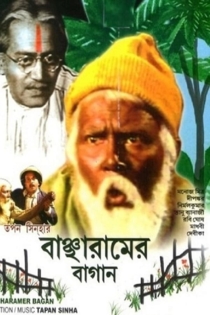
আতঙ্ক
Tapan Sinha
Soumitra Chatterjee, Sumanta Mukherjee
A teacher witnesses a murder committed by his ex-student, who restricts him from giving his statement to the police. An atmosphere of terror ensues and the teacher must decide if to muster courage and approach the police at a personal loss.
Terror
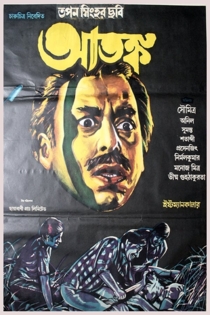
The Desolate Beach
Tapan Sinha
Rabi Ghosh
A writer meets five widows on a train to Puri. As the six lives begin to intertwine, the theme of the taboos of widowhood emerge; but so, too, does a philosophy of life and hope for the future. The performers collectively won Best Actress at India's National Film Awards in 1964.
The Desolate Beach
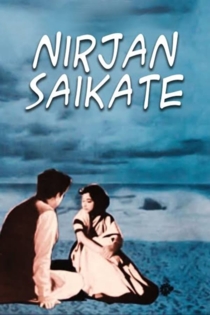
হাটে বাজারে
Tapan Sinha
Ajitesh Bannerjee, Bhanu Bannerjee
The story of Dr. Mukherjee, a highly respected civil surgeon in a small tribal district headquarters. He is the beloved of the local people, and often comes in conflict with Laxman Lal, the tyrannical son of a local aristocrat. Laxman Lal lusts after a local widow who, in order to escape his advances seeks shelter with Dr. Mukherjee. As Dr. Mukherjee treats the poor he becomes even more entwined with their lives and their little problems. To the tribals he is a godlike figure, but to Laxman Lal he is an enemy.
Hatey Bazarey
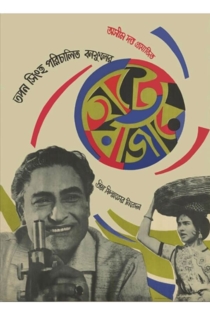
Kabuliwala
Tapan Sinha
Chhabi Biswas, Oindrila Tagore
Rahmat, a middle-aged fruit seller from Afghanistan, comes to Calcutta to hawk his merchandise and befriends a small Bengali girl called Mini who reminds him of his own daughter back in Afghanistan. One day Rehmat receives news of his daughter’s illness and decides to return to Afghanistan. But before he goes a violent fight with a customer leads to Rehmat killing him. He gets out of prison ten years later. Based on a Rabindranath Tagore story.
Kabuliwala
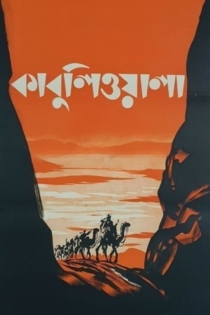
Louhakapat
Tapan Sinha
Bhanu Bannerjee, Kali Bannerjee
Based on a story of the Bengali writer Jorasandho, this film takes a sympathetic view of hardened criminals, and was notable in its time for its unsentimental and realistic depiction of the daily grind behind bars and the complex relationships that develop between the inmates.
Iron Door
